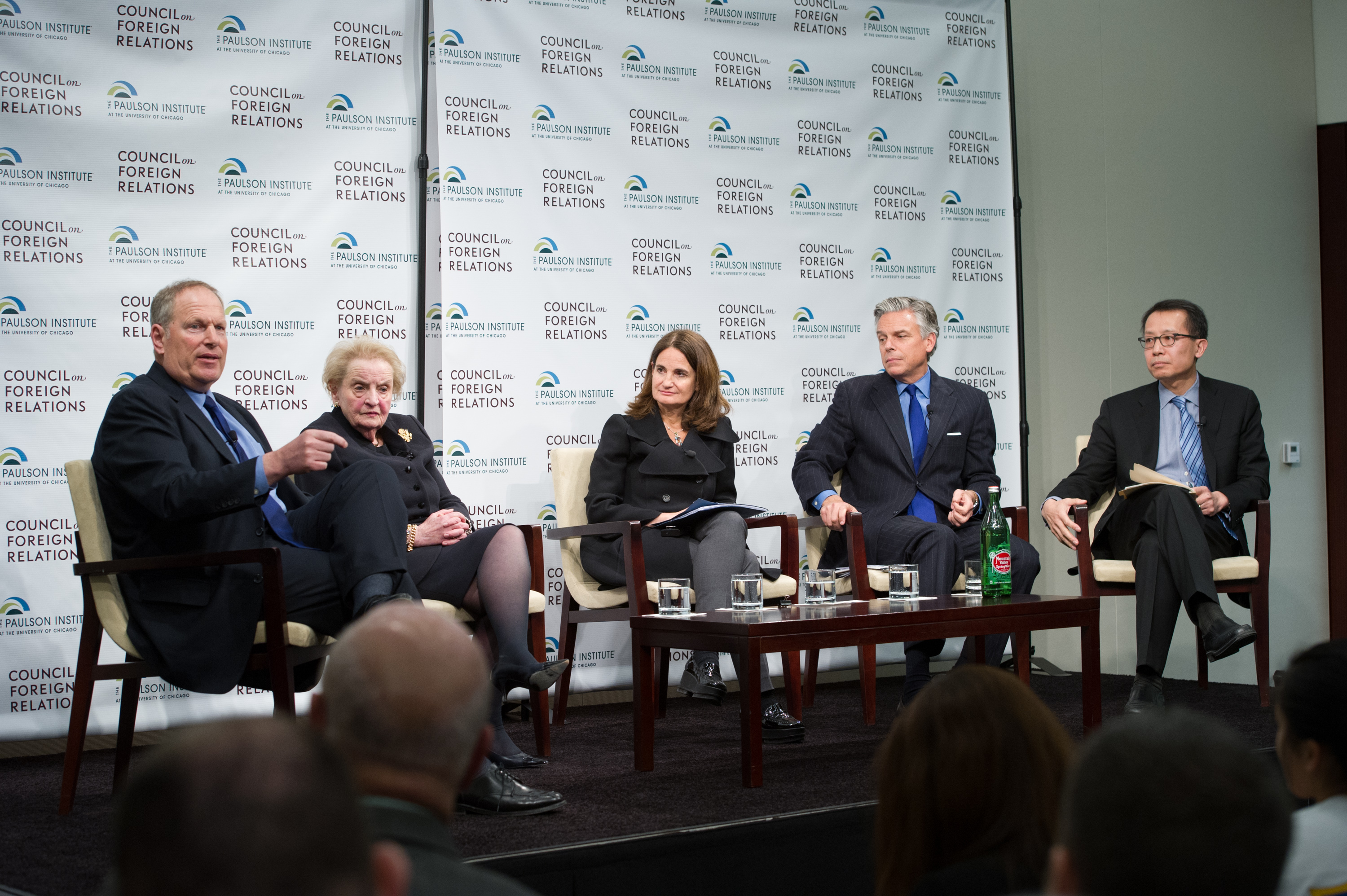
What is something that Republican and Democrat leaders from across politics and business can agree on? According to a panel co-hosted by the Paulson Institute at the Council on Foreign Relations, getting along with China is crucial for protecting the environment, global stability and world peace. “The US-China relationship is the most important relationship in the world,” Paulson Institute Chairman Hank Paulson said. “You can’t solve the world’s greatest challenges unless the two countries work together.”
Paulson was introducing the event, “Cooperation and Competition: Balancing the US-China Relationship,” featuring former Secretary of State and Democrat Madeleine Albright, former Governor Jon Huntsman, a leading Republican, Honeywell CEO Dave Cote and International Finance Corp. CEO Jin-Yong Cai, all of whom have extensive experience in China. During the discussion before a packed audience in Washington, DC, the speakers highlighted the enormity of economic reforms launched by Chinese President Xi Jinping, and underscored the need for the two countries to see beyond disagreements and solve global problems together.
Huntsman, a former US ambassador to China who speaks fluent Mandarin, expressed concern about the negative, populist tenor of debate about China in Congress, where elected officials—especially during election season—often play to their constituents by simplistically blaming American economic woes on Beijing. As presidential election season begins, he said, “the US-China relationship will be put to the test.”
To be sure, China’s rise as a global power—its economy is now officially the world’s largest in terms of GDP—is unsettling to the United States, the panelists agreed. Honeywell’s Cote, whose company has 12,000 employees in China, drew a parallel with the rise of the United States and the decline of Great Britain in the mid 19th century—and the fact that Britain is America’s closest ally today. Is conflict inevitable? “I don’t think it has to happen,” Cote said. “We need to be able to build our own important agenda, and to do everything we can to build peaceful ties and focus on things like climate change.”
The panelists underscored the importance of welcoming China to the global stage. China is looking for ways to work with the United States, Cai said. “China wants to play ball,” he said, urging the United States to avoid giving lectures. The Chinese are “very averse to US-centric institutions and would like to build their own,” Huntsman said, adding that he thought the United States took the wrong approach in rejecting China’s new Asia Infrastructure Investment Bank. Instead of criticizing, he said, “why not try to shape a common destiny…and help balance China’s role in the world?”
In his opening remarks, Paulson commended the recent US-China climate change pact and underscored the urgent need for a Bilateral Investment Treaty, which he said would not only open markets for American companies but also help push much-needed domestic economic reforms in China.
On the domestic front, Albright added a note of caution, pointing to the current tightening of controls over the internet and academic debate. “Economic reforms will need to be bolstered by political reform,” she said. “Otherwise they can’t have the long-term stability that they long for.”
Huntsman summed up the danger and opportunity in steering the US-China relationship: It’s “easy” to characterize the Chinese as “villains,” he said. “The conversation turns to not what you can do with China but what you can do to China. But the real question is, what issues do you agree on and how do you shape the world together?”
The Takeaway: The United States and China need to find ways to work together. Congress should work on building the relationship, keeping in mind long-term interests vis-à-vis an emerging China.



